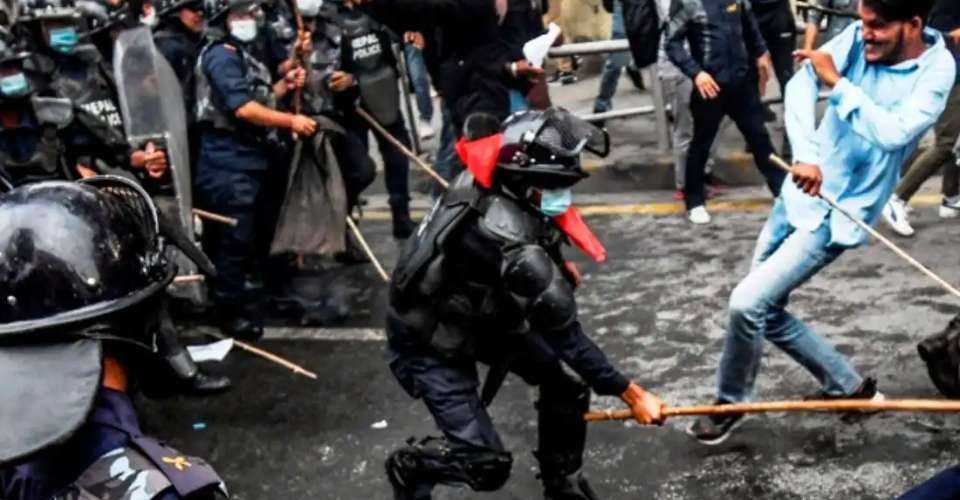
A global rights group has rated the civic space in Nepal as “obstructed” amid an ongoing police crackdown on protests, media censorship, and harassment of journalists in the country.
In its report titled Nepal: Crackdown on Protests and Suppression of Dissent published on Oct. 23, Civicus Monitor expressed concern over the “suppression of fundamental freedoms and dissent.”
“The Nepali government must stop the arbitrary restrictions and unlawful denial of protests,” said Josef Benedict a researcher at Civicus for the Asia-Pacific region.
He also urged it to “investigate all instances of unlawful killings and excessive force committed by security forces while policing protests,” and “bring the perpetrators to justice.”
“Failure to do so, will entrench a climate of impunity and contravene Nepal’s international human rights obligations,” Benedict warned.
The Civicus report highlighted multiple instances of police brutality against the protesters.
In December 2023, the police fired at a protest by hundreds of people in Lalitpur City killing at least two protesters. They arrested 54 protesters demanding the opportunity to retake a language test that they failed.
Passing the test would have allowed them to travel to South Korea to work in the shipbuilding industry.
Civicus also highlighted the ongoing reports of threats and physical attacks against journalists, mainly while covering protests.
In January 2024, several policemen attacked Bijay Rana, editor of EParinews, an online news website. He was reporting a police baton charge during a festival in Baglung, Gandaki province, it said.
“Journalists have also faced arrest and been subjected to judicial harassment for their work,” Civicus said.
In May 2024, Kailash Sirohiya, chair and publisher of the Kantipur Media Group was arrested over alleged irregularities in his citizenship card.
The probable reason for his arrest was a series of reports published by the Kantipur Daily on the misappropriation of funds from cooperatives linked to politician Rabi Lamichhane, Civicus said citing the Asian Human Rights Commission.
Lamichhane, Nepal’s former deputy prime minister, has been remanded in police custody since Oct. 20 for his alleged involvement in the cooperative scam, the Indian Express reported.
Civicus said that section 47 of Nepal’s Electronic Transactions Act, 2008, which prohibits the publication of illegal materials in electronic form “contrary to public morality or decent behavior” has been repeatedly used to detain and investigate journalists for their work.
Violation of the law carries a penalty of up to five years in prison and a fine of 100,000 Nepalese Rupees (approx. US$754) if proven guilty.
Civicus pointed out that media outlets have been targeted for their reporting or have had critical articles blocked, “raising concerns about state censorship.”
The rights group also pointed out that the authorities target activists, critics, and human rights defenders for their activism.
“Some have faced reprisals, including being arrested, harassed, and prosecuted,” Civicus said.
The rights group pointed out the case of Ganesh Man Singh Thakuri who was allegedly harassed and intimidated by the police following a social media post critical of Lamichhane.
Civicus also expressed concern that the Nepali authorities are seeking to restrict online space through laws and bans.
In November 2023, Nepal banned the popular social media platform TikTok saying that it was consistently used to share content that “disturbs social harmony and disrupts family structures and social relations.”
Civicus urged the Nepali government to give journalistic freedom to reporters and media houses while holding accountable those who try to harass them.
source : ucanews
